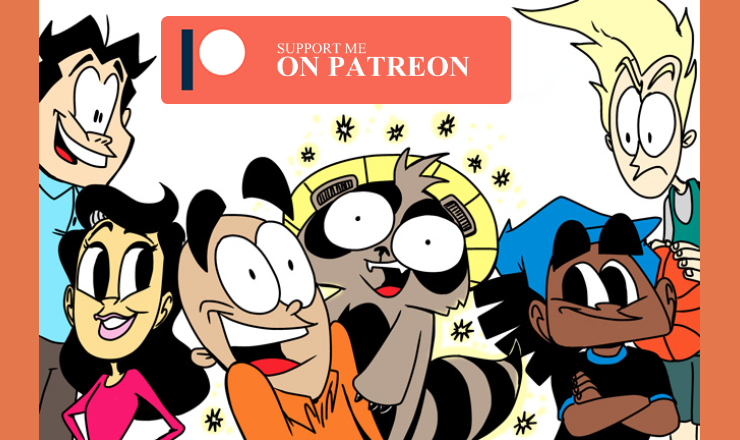4 Ways Risking Your Life to Be a Teacher Has Its Benefits
/Helping others succeed while dodging covid can give you more time to do what you love.
Image courtesy of viralityfacts.com.
Teachers are leaving the profession in such ridiculous droves you would think a ticking time bomb was placed under their desks. The low pay, stress, and fear of catching covid feel like a career in education could blow up in your face.
If you’ve got the guts to stare at possible death in the face while wearing a mask all day, teaching could give you more of what you want out of life. Does this sound crazy? Sure. We’re living in a time where going to work and catching covid could kill you.
Ignoring this fact is unrealistic.
There’s risk everywhere nowadays. If you’re privileged enough to believe everyone can work remotely from home and stay away from other people, you should open your eyes. No matter what variant of covid is going around, everyone needs to pay the bills.
Most workers have to stay afloat by showing up to work on-site, hopefully fully vaccinated. Teaching, like any profession, has its positives and negatives, but if you look at it in the right way, it is still a pretty darn good job.
It’s time we diffuse the bomb and take another look at why teaching is the most remarkable career in these uncertain times.
1. You give a lot but get so much more in return
Imagine a job where you get to help young people learn new skills and information that will prepare them for their future. I bet, if you’re not a teacher, that doesn’t sound all that great at first. Maybe something for a kind friend you have who’s always volunteering their time to others, but not you.
Watching someone grow into a more intelligent, mature, and confident individual is more fulfilling than you might realize. I didn’t even know how fulfilling it could be at first.
I loved drawing comics and dreamed of becoming a famous cartoonist when I was a kid. My mother was a teacher, and there was no way I would become a teacher too. In my mind, teaching would mean I failed as an artist.
No thanks.
After graduating from college with a degree in graphic design, I began freelancing with a portfolio more tailored towards illustration. Finding a full-time illustration job didn’t work out, and I fell into teaching art in elementary school.
I knew I would hate it and expected it to suck—the magic of sharing my skills with kids and seeing them grow as artists were infectious. I fell in love with teaching.
My students said thank you to me regularly, and I felt like teaching gave back so much more than entertaining people with my illustrations and comics ever could.
It’s true. If you want to make a difference in the world—teach.
2. Low pay but more time off to do what you love
Here’s the thing, according to a recent study by the RAND Corporation, nearly one out of four teachers in the U.S. considered leaving their job by the end of the school year because of work-related stress and low pay.
Teaching ain’t easy these days.
If you can put your heart into your work by giving more focus to how you’re helping students, you may stay in the profession longer. One way to balance out the hard work is with generous vacation time.
Time for your hobbies and side hustles. With two weeks off during the holidays, a week at spring break, and two months off in the summer, not to mention every other major holiday, you can make time for doing your hobbies.
In essence, you’re getting paid for an entire year but only working full-time for nine months.
One part of teaching that shocks me to this day is how exhausted I am when these vacations come around—like borderline burnt out. Of course, the level of depletion you experience depends on where you’re teaching and what you go through each day. In some situations, school systems, student bodies, and faculty can be better or worse than others.
Teaching can truly take it out of you, but if you have something creative you love to do, it can give you the time to work on your projects. Not just during time off, but each working day. You are the one running your classes and deciding when to grade or plan outside of instructional hours, so your personal time is flexible.
Maybe you have a principal peeking over your shoulder every minute, but I doubt it. Most likely, though, teaching feels more like running your own business. There are always requirements to meet and people to please, but you can make the most of your time the way you choose.
Even when the days are tough, teachers are creative and can lighten the mood to keep everyone sane with a bit of insanity.
Image courtesy of viralityfacts.com.
3. Teachers can leave the profession and come back
There’s no corporate ladder, so you can do something else and return to teaching in your exact position. In fact, the experience you’ll bring with you from your other career could enhance what you teach your students. You might have to move to a new school or district, but that could help you negotiate a higher salary.
If you’re looking to transition into another field, you have time to study or build a business while teaching. The schedule is predictable, so you can efficiently plan and use your off time.
I spent three years freelance writing in my off time and then took a copywriting job with a tech company in silicon valley.
At that time, I was ready for a new challenge. I felt the need to grow as a writer and learn new skills, so I made a move, knowing full well I could go back to teaching if necessary.
The pandemic hit almost two years later, and BAM, I lost my job—going back to education was a lifesaver.
I could bring what I learned in the corporate world and, along with teaching art, help by working with communications and marketing of the school. It’s a blast combining my love of the arts and storytelling with writing and sharing content.
After several more years, who knows, perhaps work writing or drawing opportunities may come up. I could leap again to help grow and learn new skills, knowing I have years of experience in education to fall back on.
Even though the trend nowadays seems to be either quitting your job or working for only a year, I like staying for 2–3 years if possible. You learn the ropes and have more time for deeper connections with coworkers and students.
Teaching at a school isn’t the only way to be an educator, though.
4. Teachers can work everywhere
You can teach in a classroom at a school if that’s your goal, but there are plenty of opportunities online. Remote learning is enormous and most likely here to stay. Many professionals will take courses remotely via zoom, and schools need people who understand designing and building a curriculum.
If you want to go corporate, companies need teachers to help train new employees. Even in sales, having experience speaking in front of a group and clearly explaining the benefits of products is not something everyone can do well. Teaching experience gives you advantages.
As we get a better hold on the pandemic, more jobs will open teaching overseas where you can experience another country and culture. I lived in Japan teaching English for two years and absolutely loved my time there.
Getting a chance to live in such a beautiful country, learn the language, and even meet my wife made me appreciate the doors a teaching career can open for you.
If you look at your career in education as an excellent way to learn new skills and grow as a person, you can move into just about any job. The issue right now is with staying healthy and avoiding getting covid.
Comparing your career to an adventure may sound extreme, but in a lot of ways, it’s true. You have to be ready for the twists and turns but stay open to where it can take you, and I say it’s worth the risks.
If you’re a teacher who sees the benefits of your profession, take hold of the possibilities and explore your options. You’re in demand. Maybe you’re someone who enjoys helping others and can transition into a career in education. I say go for it.
Where will you decide to teach next?
Want more? If you’re struggling with making authentic work, click here to join my (free) email list, and through comics, articles about culture, and living your truth, you can discover how to upgrade your mindset and share your creative writing and art with the world.







